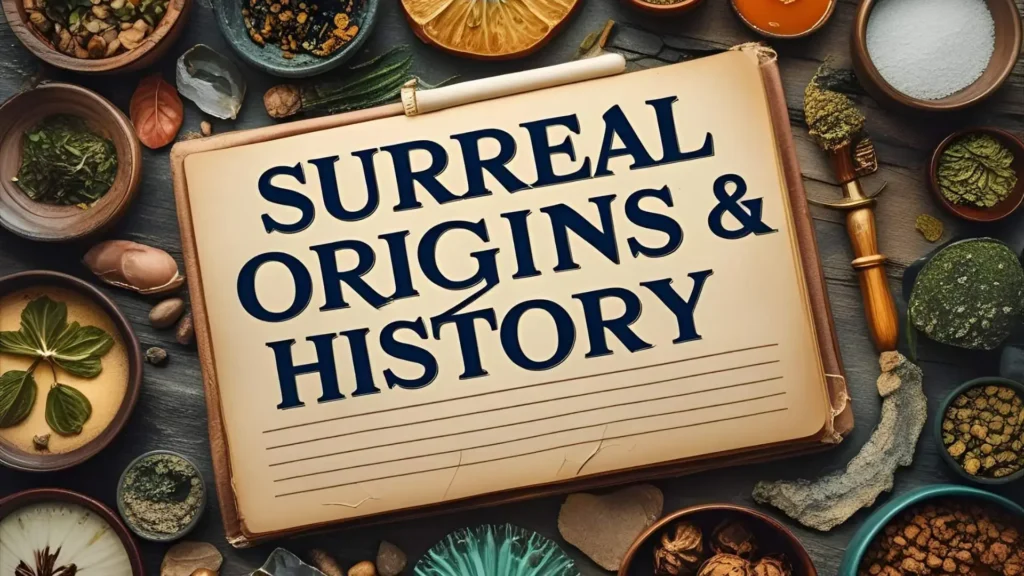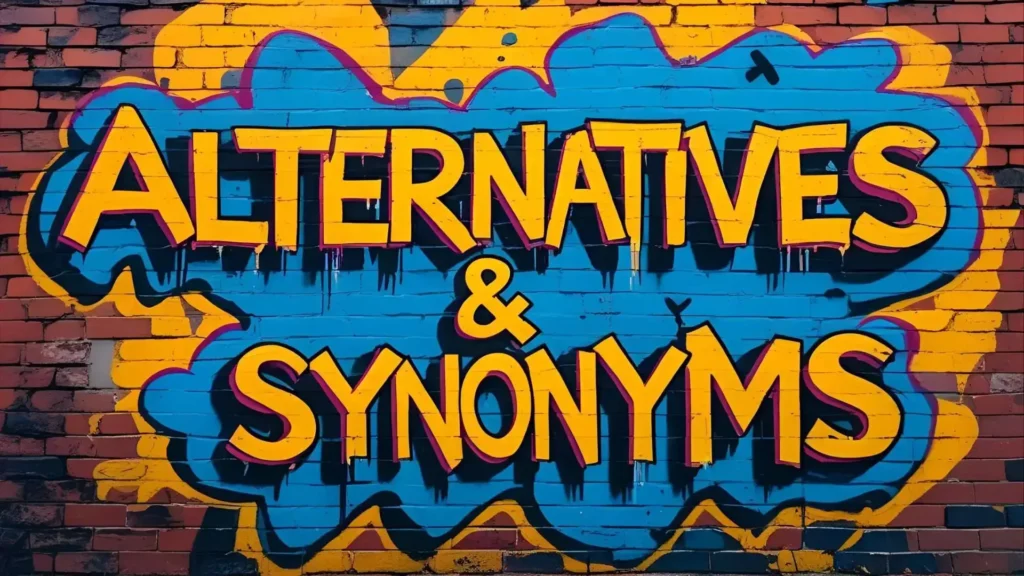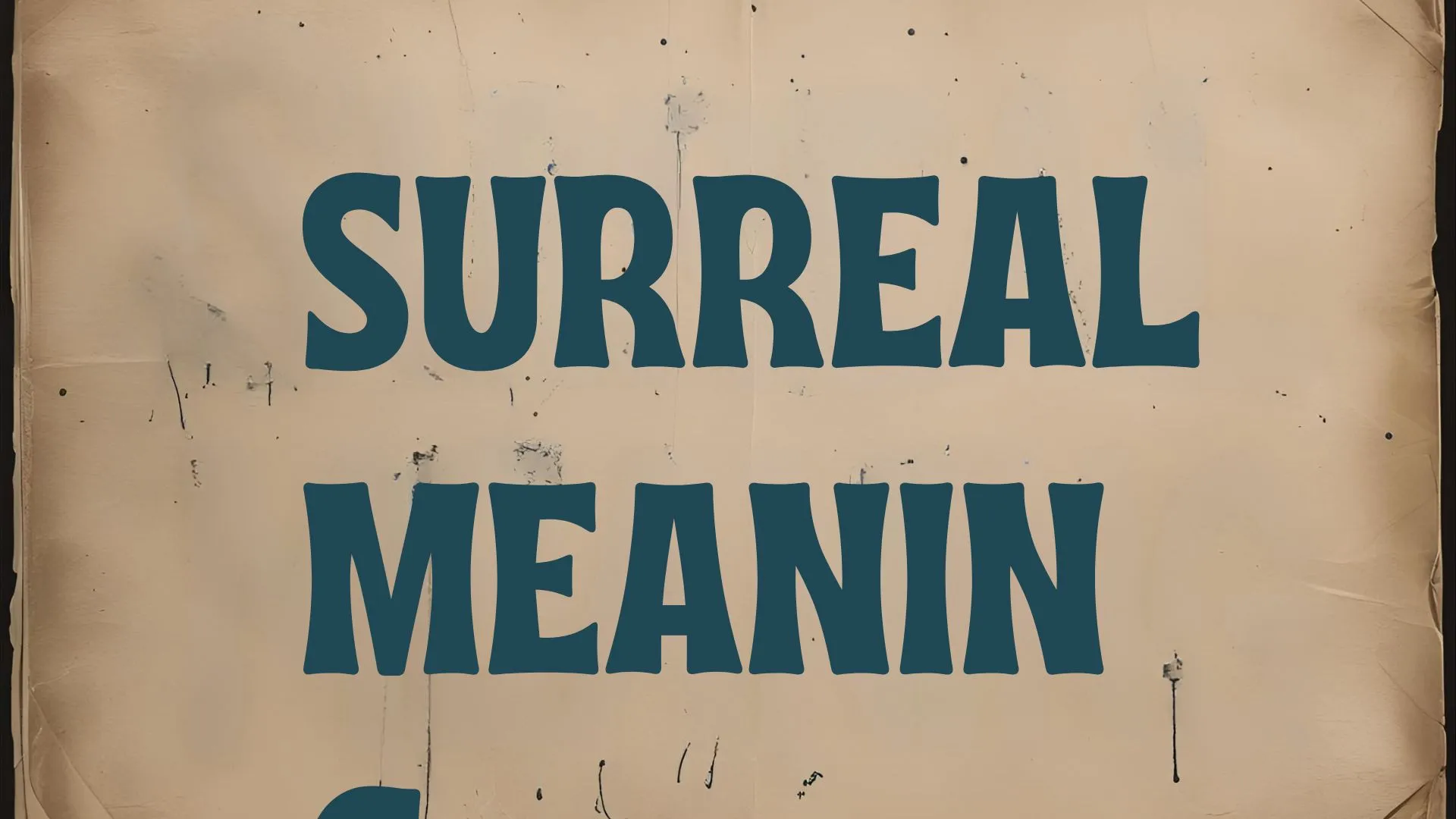The word surreal is one of those terms that often pops up in conversations, headlines, and even social media posts, yet many people are unsure of its deeper meaning.
At its core, surreal describes something that feels dreamlike, bizarre, or beyond the boundaries of normal reality.
Whether it’s an extraordinary life experience, an unusual piece of art, or a shocking event, people often use the surreal to capture that sense of being caught between reality and imagination.
Understanding this word not only improves our vocabulary but also helps us describe moments and experiences with greater accuracy and emotion.
From its roots in the Surrealist art movement to its modern-day use in everyday language, surreal has evolved into a versatile term that resonates with people across cultures.
Let’s explore its meaning, origins, contexts, and common misconceptions in detail.
Surreal vs Unreal: Meaning and Differences
Both surreal and unreal describe things that are unusual or hard to believe, but they are used differently in English. Understanding their nuances helps in choosing the right word for context.
1. Surreal
- Meaning: Something that feels dreamlike, bizarre, or beyond normal reality. Often used to describe experiences, events, or art that are strangely vivid or emotionally intense.
- Use: Typically conveys a poetic or artistic tone.
- Examples:
- The sunrise over the mountains was surreal, like a painting come to life.
- Winning the award felt surreal; I couldn’t believe it was happening.
- Synonyms: dreamlike, fantastical, otherworldly
2. Unreal
- Meaning: Something that seems not real, extraordinary, or extremely impressive. Often used informally to express amazement or disbelief.
- Use: Common in casual speech and to exaggerate how impressive or shocking something is.
- Examples:
- That concert last night was unreal; I’ve never seen anything like it!
- The special effects in the movie were totally unreal.
- Synonyms: incredible, unbelievable, extraordinary
Key Differences
| Aspect | Surreal | Unreal |
|---|---|---|
| Tone | Artistic, poetic, dreamlike | Informal, casual, amazement |
| Usage | Experiences, art, emotions | Reactions, impressions, exaggeration |
| Emotional Impact | Often strange or uncanny | Often impressive or shocking |
Quick Tip: Use surreal when describing something bizarre or emotionally strange. Use unreal when expressing awe, amazement, or disbelief in casual conversation.
Feels Surreal Meaning

The word surreal is derived from the French term surréalisme, which translates to “above reality” or “beyond reality.”
In English, it describes something it feels surreal meaning dreamlike, illogical, or extraordinary in a way that defies normal expectations.
In everyday use, calling an event “surreal” suggests it was so unusual or astonishing that it felt unreal, as if lifted from a dream or fantasy. For example:
- Winning the lottery might be described as surreal.
- Meeting a childhood idol unexpectedly often feels surreal.
- Natural wonders, like the Northern Lights, leave many travelers calling the experience surreal.
In psychology, surreal experiences often trigger strong emotional responses because they blur the lines between familiarity and impossibility.
They stand out in memory, leaving lasting impressions.
Thus, surreal bridges the gap between reality and imagination, giving us language to capture moments that ordinary words struggle to describe.
Origins & History

The origin of surrealism is closely tied to the Surrealist art movement of the early 20th century.
French poet Guillaume Apollinaire first used the term surréaliste in 1917, and it was later popularized by writer André Breton, often referred to as the “father of Surrealism.”
The Surrealist movement sought to unlock the unconscious mind, embracing dreams, fantasies, and irrational juxtapositions.
Artists such as Salvador Dalí, René Magritte, and Max Ernst created surreal works that challenged conventional perceptions of reality.
Dalí’s melting clocks in The Persistence of Memory became iconic symbols of this style.
By the mid-20th century, the word surreal began to spread beyond the art world, entering everyday language.
It started being used to describe extraordinary events, emotional encounters, and dreamlike situations.
Today, surreal remains both a cultural term rooted in art history and a common descriptor in daily life.
Usage in Different Contexts
Social Media
On platforms like Instagram, Twitter, or TikTok, surreal is often used to describe breathtaking travel moments, life milestones, or shocking news.
For instance, a post about graduating after years of struggle may include the caption: “This feels surreal.”
Professional Settings
In journalism and business, surreal describes events or situations that seem unbelievable. News outlets may report a “surreal scene” when covering major world events, from political uprisings to once-in-a-lifetime natural phenomena.
Pop Culture
In movies, music, and literature, surreal frequently describes imaginative, bizarre, or dreamlike elements. Films by directors like David Lynch (Mulholland Drive) or Christopher Nolan (Inception) are often described as surreal for their blending of reality and illusion.
Personal Experiences
Everyday people use the surreal to capture big life moments—such as becoming a parent, traveling abroad for the first time, or experiencing awe-inspiring art. It conveys an emotional reaction that goes beyond mere surprise.
Common Misunderstandings & Clarifications
Because surreal is widely used, it is often misunderstood or misapplied. Here are some clarifications:
- Surreal ≠ Unreal: While they sound similar, unreal simply means “not real” or “fake.” Surreal, on the other hand, refers to something real that feels unreal due to its extraordinary nature.
- Surreal ≠ Surrealism: Surrealism refers specifically to the artistic and cultural movement. Surreal can describe anything that feels dreamlike, whether or not it relates to art.
- Not Just for Negative Events: While surreal is sometimes used to describe tragedies (e.g., natural disasters), it can also describe positive, awe-inspiring experiences.
- Overuse Weakens Its Impact: Calling everyday, minor surprises “surreal” (like getting free coffee) can water down the true power of the word.
Understanding these distinctions helps ensure the word is used accurately and meaningfully.
Alternatives & Synonyms

If you want to vary your vocabulary, here are some useful synonyms and related terms for surreal:
- Dreamlike – Suggesting something that feels like a dream.
- Ethereal – Delicate, otherworldly, or heavenly.
- Fantastic – Extraordinary or imaginative, beyond the ordinary.
- Otherworldly – Suggesting something alien or outside normal human experience.
- Bizarre – Strangely unusual or unexpected.
Each of these carries slightly different nuances. For instance, ethereal emphasizes beauty, while bizarre highlights strangeness. Choosing the right synonym depends on the context.
FAQ
Q: Is surreal positive or negative?
Surreal is generally neutral. It describes something bizarre, dreamlike, or unusual, and the context determines if it feels positive, negative, or simply strange.
1. What does surreal mean in simple terms?
Surreal means something so unusual or extraordinary that it feels like a dream, even though it’s real.
2. Is surreal always related to art?
No. While its roots are in the Surrealist art movement, today surreal is widely used to describe personal experiences, events, and feelings.
3. What is the difference between surreal and unreal?
Unreal means something isn’t real at all. Surreal means something is real but feels dreamlike or unbelievable.
4. Can surreal describe both good and bad events?
Yes. Surreal can describe joyful, awe-inspiring moments (like a wedding) or shocking, tragic events (like natural disasters).
5. What is an example of a surreal experience?
Seeing the Northern Lights, meeting a celebrity unexpectedly, or walking through a deserted city during a lockdown can all feel surreal.
6. Who are famous Surrealist artists?
Salvador Dalí, René Magritte, and Max Ernst are among the most famous Surrealist artists.
7. Why do people say “this feels surreal”?
They use it to describe a powerful emotional reaction to something that feels extraordinary, beyond ordinary reality.
Conclusion
The word surreal captures a unique human experience—the blend of reality and dreamlike wonder.
From its beginnings in the Surrealist art movement to its everyday use in describing unforgettable events, surreal has become a powerful way to express the extraordinary.
Whether describing breathtaking natural beauty, life-changing personal milestones, or shocking global events, the word carries emotional weight that connects deeply with our sense of awe and disbelief.
By understanding its true meaning, origins, and appropriate contexts, we can use surreal more effectively to articulate moments that words often fail to capture.

